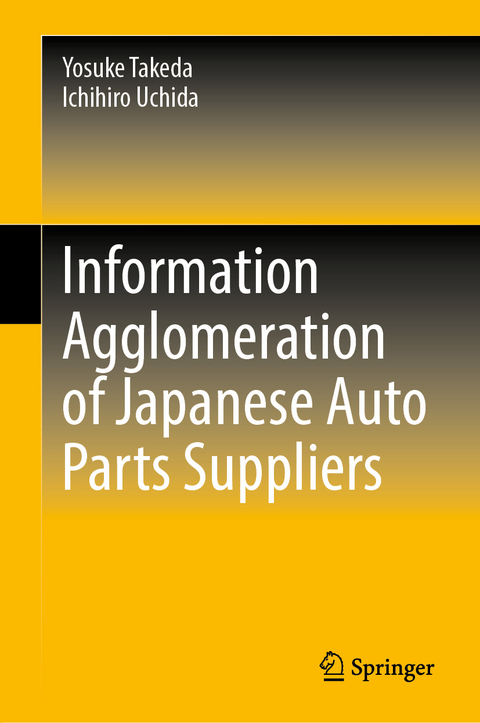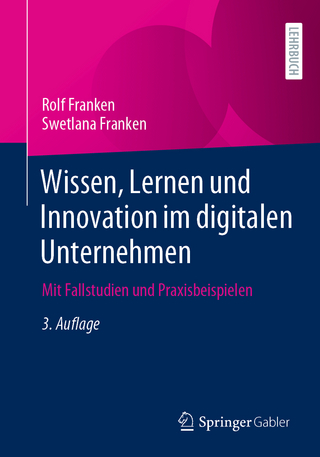
Information Agglomeration of Japanese Auto Parts Suppliers
Springer Verlag, Singapore
978-981-19-3299-1 (ISBN)
We take the Japanese auto parts suppliers for example. The production system in which highly modularized products are crafted by skilled labors and multipurpose machines was called flexible specialization instead of mass production by Piore and Sabel (1984).
However, the conventional economics of transaction costs pioneered by Ronald Coase and Oliver Williamson suggests that it is costly for dispersed organizational networks to make and sustain creational links to accumulate vast volumes of knowledge/ information. We wonder what has made information agglomeration possible for the Japanese auto parts suppliers with the flexible specialization. What has lowered the transaction costs associated with the organizational links?
We consider what causes the information agglomeration to amplify in the supply chains, constructing economic models of some hypotheses on the driving forces of information agglomeration and utilizing firm-level and establish-level micro data to empirically test these hypotheses. Finally, based on the empirical evidence on information agglomeration, we shed light on whither fast-evolving automobile manufacturing in Japan that autonomous driving technology is likely to exert traction on.
Yosuke Takeda, Master of Economics (University of Tokyo), is Professor at the Faculty of Economics, Sophia University, Japan. Prior to his current position, he was a visiting associate professor at the Department of Economics, Rutgers University (1997); a visiting research fellow at the Economic Growth Center, Yale University (1998, 2007); and an associate professor at the Faculty of Economics, Sophia University (1994-2005). His research interests cover macroeconomics including monetary policy and fiscal policy, empirical industrial organization of Japanese autoparts suppliers and supply chain networks, an evolutionary approach to intra-family risk-sharing, and a social learning model of state formation and cultural evolution. His research has been published in various academic journals including Macroeconomic Dynamics and the Japanese Economic Review. He has also published and contributed to books on heterogeneous expectations in the Japanese economy, effects ofunconventional monetary policy, and other topics. Professor Takeda received the Economist Award in 2013 (Mainichi Shimbun), which was shared with Mr. Yasuhide Yajima. Ichihiro Uchida, Ph.D. (Ritsumeikan University), is Professor at the Faculty of Economics, Aichi University, Japan. Prior to his current position, he was a visiting research fellow at the Department of Economics, Okinawa International University (2016-2017), and an associate professor at the Faculty of Economics, Aichi University (2002–2012). His research interests cover applied econometrics analyses on regional industrial structure and regional finance, networks of Japanese auto parts suppliers, and family business succession in Okinawa, Japan. His research has been published in various academic journals including regional science and regional finance.
The Economics of Information Agglomeration.- Technology Information Sharing.- Initiative for Relation-Specific Skills.- Automobile Electronics and Capital Adjustment Costs.- Legal Enforcements for Competition Policy.
| Erscheinungsdatum | 18.09.2024 |
|---|---|
| Reihe/Serie | SpringerBriefs in Economics |
| Zusatzinfo | 23 Illustrations, color; 1 Illustrations, black and white; XI, 132 p. 24 illus., 23 illus. in color. |
| Verlagsort | Singapore |
| Sprache | englisch |
| Maße | 155 x 235 mm |
| Themenwelt | Recht / Steuern ► EU / Internationales Recht |
| Wirtschaft ► Betriebswirtschaft / Management ► Unternehmensführung / Management | |
| Wirtschaft ► Volkswirtschaftslehre | |
| ISBN-10 | 981-19-3299-9 / 9811932999 |
| ISBN-13 | 978-981-19-3299-1 / 9789811932991 |
| Zustand | Neuware |
| Haben Sie eine Frage zum Produkt? |
aus dem Bereich


